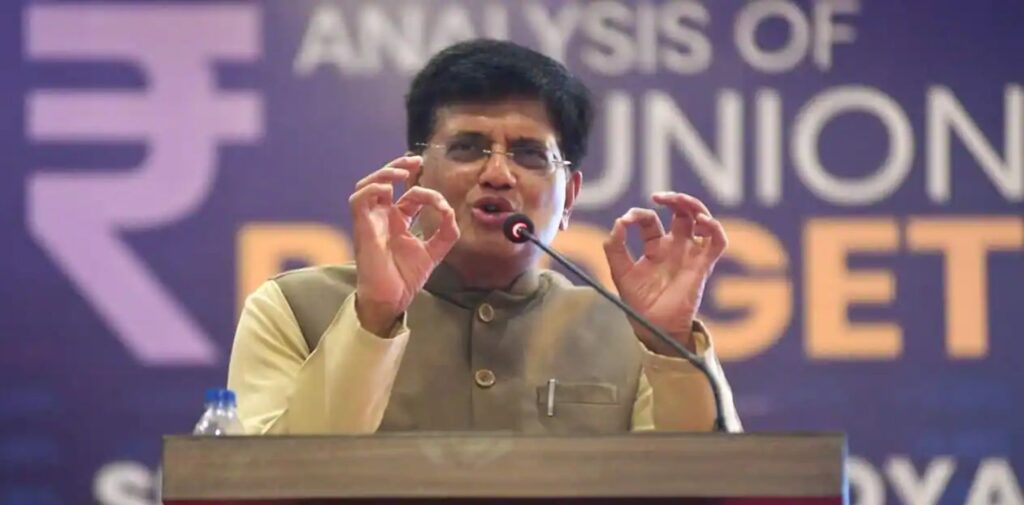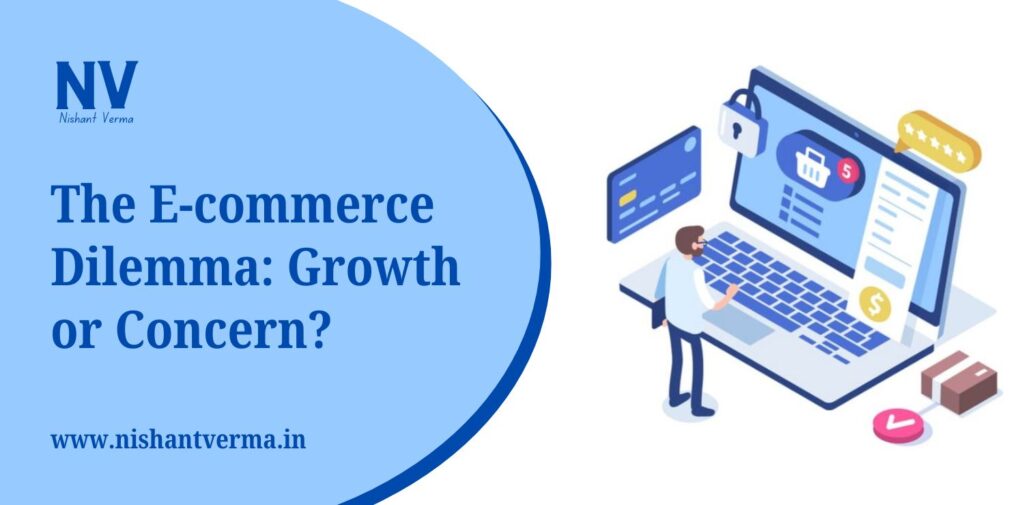The rise of e-commerce in India has been one of the most significant shifts in the business landscape in recent years. Online shopping platforms like Amazon, Flipkart, and various others have revolutionized consumer behavior, reaching even the most remote areas. However, this rapid growth has sparked concern from various quarters, including policymakers. Recently, Union Minister of Commerce Piyush Goyal stated that while the growth of e-commerce is impressive, it should not be a source of pride but a matter of concern. This statement has led to a debate about the future of e-commerce and its impact on India’s economy, small businesses, and society.
E-commerce Growth: Boon or Bane?
The Indian e-commerce market has expanded at an extraordinary rate, with projections indicating that it will grow from $70 billion in 2022 to $325 billion by 2030. Much of this growth has been driven by increasing internet penetration, widespread smartphone usage, and digital payment infrastructure, making online shopping accessible to even smaller cities and towns. This surge in e-commerce activity has introduced convenience and expanded consumer choices, with close to 100% of pin codes in India experiencing e-commerce adoption.
However, as Goyal pointed out, this unchecked growth could lead to significant issues, especially for small retailers. The minister raised concerns about predatory pricing strategies employed by e-commerce giants, which he believes harm local businesses.
“What has happened to the corner stores, the Mom-and-Pop shops? How many of them do you see surviving?” Goyal asked during his address. Many small retailers, who often rely on high-margin products for their survival, are being outcompeted by the deep discounts offered by online platforms, which can afford to operate at a loss for extended periods Predatory Pricing Problem.
One of the most significant concerns surrounding the e-commerce industry is its use of predatory pricing. This is when large platforms offer goods at extremely low prices, undercutting local businesses and smaller competitors. E-commerce giants like Amazon and Flipkart can afford to do this by absorbing losses in the short term, thanks to their deep pockets and global backing. While this benefits consumers in the form of lower prices, it can eventually wipe out smaller retailers who cannot compete with such discounts.

oyal highlighted this problem by pointing out that investments from companies like Amazon are often used to cover losses rather than contributing meaningfully to the Indian economy. He questioned why such business practices are celebrated, noting that Amazon, in particular, has been operating at a loss in India. The concern is that once local competition is wiped out, these platforms could dominate the market and set prices as they wish pact on Small Retailers.
India’s small retail sector, comprising millions of local shops and family-run businesses, has traditionally been the backbone of the country’s economy. These businesses have been severely affected by the growth of e-commerce. Many small retailers are finding it difficult to keep up with the aggressive pricing and vast inventory that e-commerce platforms can offer. As a result, thousands of small shops are closing down, especially in urban and semi-urban areas where online shopping is more prevalent.
This disruption isn’t just an economic concern but also a social one. The local “kirana” stores and small businesses have long provided a personalized shopping experience, including credit facilities and home delivery, which fostered close community relationships. The e-commerce model, with its automated and impersonal nature, is changing the dynamics of how people interact with businesses, leading to what Goyal described as a “social disruption”

Concerns
Another issue raised by the minister is the lack of proper regulation of e-commerce platforms. Although direct business-to-consumer (B2C) e-commerce is technically restricted for foreign companies, many platforms circumvent these rules by setting up intermediary entities. Goyal called attention to this issue, noting that consumers still purchase from these platforms, even though B2C e-commerce is not allowed. He expressed concerns about the legal loopholes that allow such practices to continue, suggesting that stronger regulations are needed to ensure a fair playing field for all businesses,




